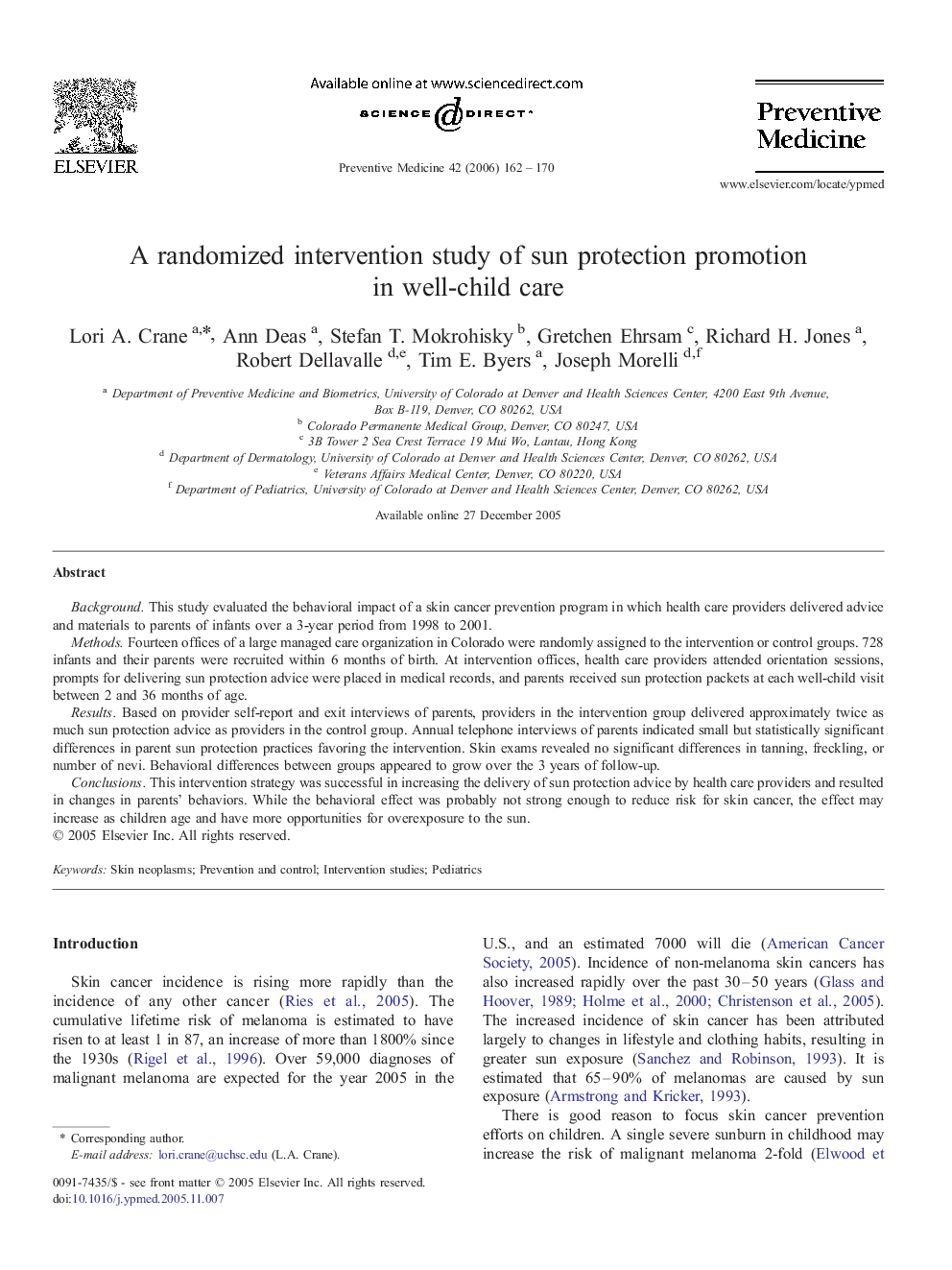| کد مقاله | کد نشریه | سال انتشار | مقاله انگلیسی | نسخه تمام متن |
|---|---|---|---|---|
| 3101992 | 1191278 | 2006 | 9 صفحه PDF | دانلود رایگان |

Background.This study evaluated the behavioral impact of a skin cancer prevention program in which health care providers delivered advice and materials to parents of infants over a 3-year period from 1998 to 2001.Methods.Fourteen offices of a large managed care organization in Colorado were randomly assigned to the intervention or control groups. 728 infants and their parents were recruited within 6 months of birth. At intervention offices, health care providers attended orientation sessions, prompts for delivering sun protection advice were placed in medical records, and parents received sun protection packets at each well-child visit between 2 and 36 months of age.Results.Based on provider self-report and exit interviews of parents, providers in the intervention group delivered approximately twice as much sun protection advice as providers in the control group. Annual telephone interviews of parents indicated small but statistically significant differences in parent sun protection practices favoring the intervention. Skin exams revealed no significant differences in tanning, freckling, or number of nevi. Behavioral differences between groups appeared to grow over the 3 years of follow-up.Conclusions.This intervention strategy was successful in increasing the delivery of sun protection advice by health care providers and resulted in changes in parents' behaviors. While the behavioral effect was probably not strong enough to reduce risk for skin cancer, the effect may increase as children age and have more opportunities for overexposure to the sun.
Journal: Preventive Medicine - Volume 42, Issue 3, March 2006, Pages 162–170